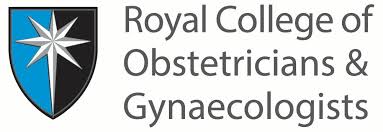Royal College of Obstetricians and Gynaecologists: NGO against COVID-19 Non-funding Support

Entity: Royal College of Obstetricians and Gynaecologists
Category: non-funding support
Description: The Royal College of Obstetricians and Gynaecologists is professional association based in London, United Kingdom. Its members, including people with and without medical degrees, work in the field of obstetrics and gynaecology, that is, pregnancy, childbirth, and female sexual and reproductive health
1. Project
Building consensus on good practice for managing post-partum haemorrhage in women with diagnosed or suspected COVID-19
Research Group: THIS Institute
Project Description:The aim is to build consensus around best practice for the clinical management of women who are known or suspected to have COVID-19 during the medical emergency that is post-partum haemorrhage. Consultation will take place with experts in the fields of maternity care, infection, prevention and control and human factors. This consultation and engagement exercise will result in the production of resources demonstrating how women’s care needs to be adjusted to account for the confirmed or possible presence of COVID-19. The project will be conducted in collaboration with the Royal College of Obstetricians and Gynaecologists and the Royal College of Midwives. THIS Institute’s citizen science platform, Thiscovery, will be used to facilitate the work. The Health Foundation’s grant to THIS Institute will be used to support this project.
Collaborators: The project will be conducted in collaboration with the Royal College of Obstetricians and Gynaecologists and the Royal College of Midwives. THIS Institute’s citizen science platform, Thiscovery, will be used to facilitate the work.
Project: Building consensus on good practice for remote antenatal care in response to the COVID-19 outbreak
Research Group: THIS Institute
2. Project
Antenatal care guidance
The aim is to develop guidance on what good looks like for antenatal care at a time when face-to-face appointments are not possible. Existing practice in this area will be reviewed. Interviews and other consultations will be conducted with key stakeholders including women, partners, midwives and other clinicians. Co-design will be utilised to enable the drafting of guidelines, including but not limited to monitoring of blood pressure and urine analysis. Simulated video consultations will be co-produced to illustrate new ways of working and feedback will be sought. A consensus-building process facilitated by Thiscovery, THIS Institute’s citizen science platform, will be used. Collaborators include the Royal College of Obstetricians and Gynaecologists and the Royal College of Midwives. Major charities in this field have already been engaged and indicated their support. The Health Foundation’s grant to THIS Institute will be used to support this project.
Collaborators: Collaborators include the Royal College of Obstetricians and Gynaecologists and the Royal College of Midwives.
